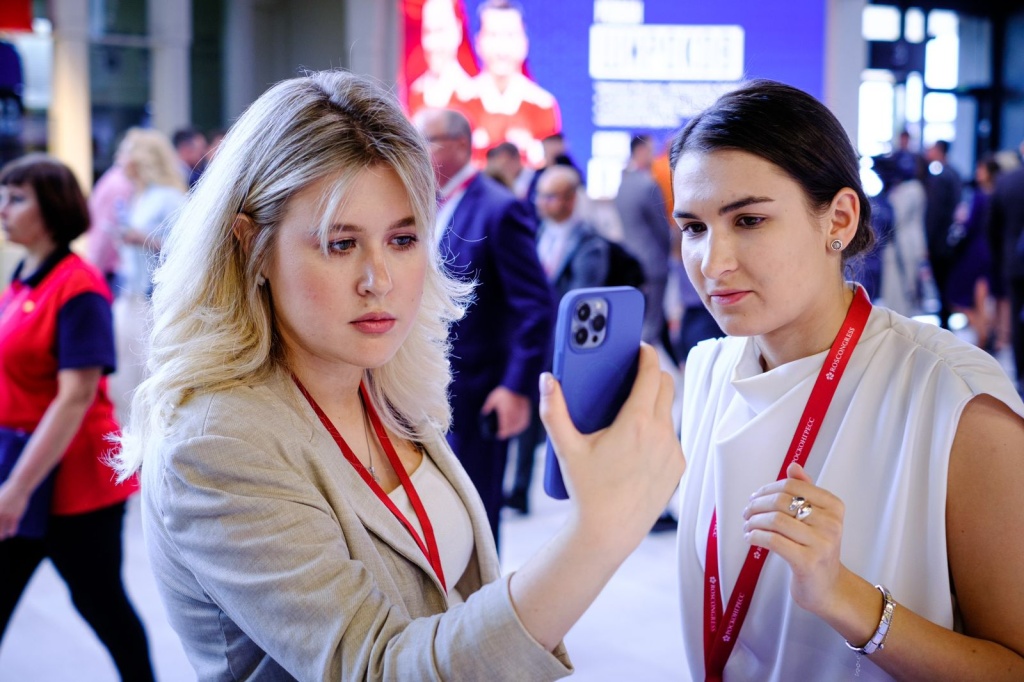
SCO Business Forum: Promising Foundation for Economic Cooperation
On June 16, 2016, the business forum ‘Promising Foundation for Economic Cooperation was held as part of SPIEF 2016, with representatives of Russia, China and Kirghizia participating.
The discussion centres on the main achievements, the current state of and prospects for developing economic cooperation in the SCO space, in addition to the possibilities for using the transit potential and diversifying the forms of business engagement. The discussion was moderated by Chairman of the Russian Section from of the SCO Business Council, President of the Chamber of Commerce of the Russian Federation and Industry Sergei Katyrin.
First Deputy Minister of Economic Development of the Russian Federation Alexey Likhachev pointed to the positive trade turnover between Russia and SCO nations in January–April 2016: “This positive trend is mainly buttressed by our cooperation with China,” Mr. Likhachev explained. Nevertheless, Kirghizia has almost doubled its supplies to Russia, while Uzbekistan added nearly 9% to its supplies.
Simultaneously, India and Pakistan’s accession to the SCO is proceeding: these nations have already launched international cooperation within the framework of this institution.
This trend was reaffirmed by Kirghiz Minister of Economy Arzibek Kozhoshev: SCO nations account for the larger part of Kirghizia’s trade turnover.
Kirghizia has repeatedly put forward the initiative of establishing an SCO Bank of Development, Mr. Kozhoshev emphasized. This matter will be discussed in September at the meeting of finance ministers of the member states.
Chief Executive Officer of Russian Export Center, JSC Petr Fradkov discussed the increasing share of Russian non-energy exports to the SCO nations. Among the negative factors, he mentioned the general reduction in the total value.
Another important aspect of cooperation between the member states – transport interaction – was mentioned by Deputy Secretary-General of the SCO Wang Kaiwen. The SCO members, he informed, has signed an agreement about creating a favourable environment for international road services. This document provides for pass-through road routes all along the way from the Pacific to the Atlantic.
Chairman of the Management Board of the Development Eurasian Bank (EBD) Dmitriy Pankin shared his opinion about the free trade zone: “We are overoptimistic about creating a free trade zone inside the SCO or between the SCO and other institutions. The situation is much more difficult and this won’t be a fast process. Most likely, this is a matter of agreements between specific nations. Developing a comprehensive free trade zone agreement is unreal. Moreover, another important aspect is lost in these discussions: the investment dimension.”
First Vice-President of Gazprombank Sanjar Aspandiiarov commented on the investment aspect: “Since the SCO’s inception, a stable and resilient class of investors has been formed; these investors can and must shoulder some of the tasks faced by the government,” he stated. He also stressed the importance of creating a favourable investment environment.
Presidential Commissioner of the Russian Federation for the Protection of Entrepreneurs’ Rights Boris Titov dwelled on the development of Russian–Chinese relations. “Never before have we seen such activity from the Chinese SME community. Not all their ideas are materialized in real projects, of course. Like any investor, China is concerned about the situation in Russia; first and foremost, Chinese investors assess the risks and far from everyone can accept these risks. In spite of this hesitation, we constantly feel that the Chinese Government is pushing its investors towards cooperation with Russia,” said Mr. Titov.
He also mentioned a reciprocal trend of an increasing number of Russian companies develop their business in China. Huge markets for Russian goods have been created on the border between the two countries. First of all, these are foodstuffs,” noted Mr. Titov.








